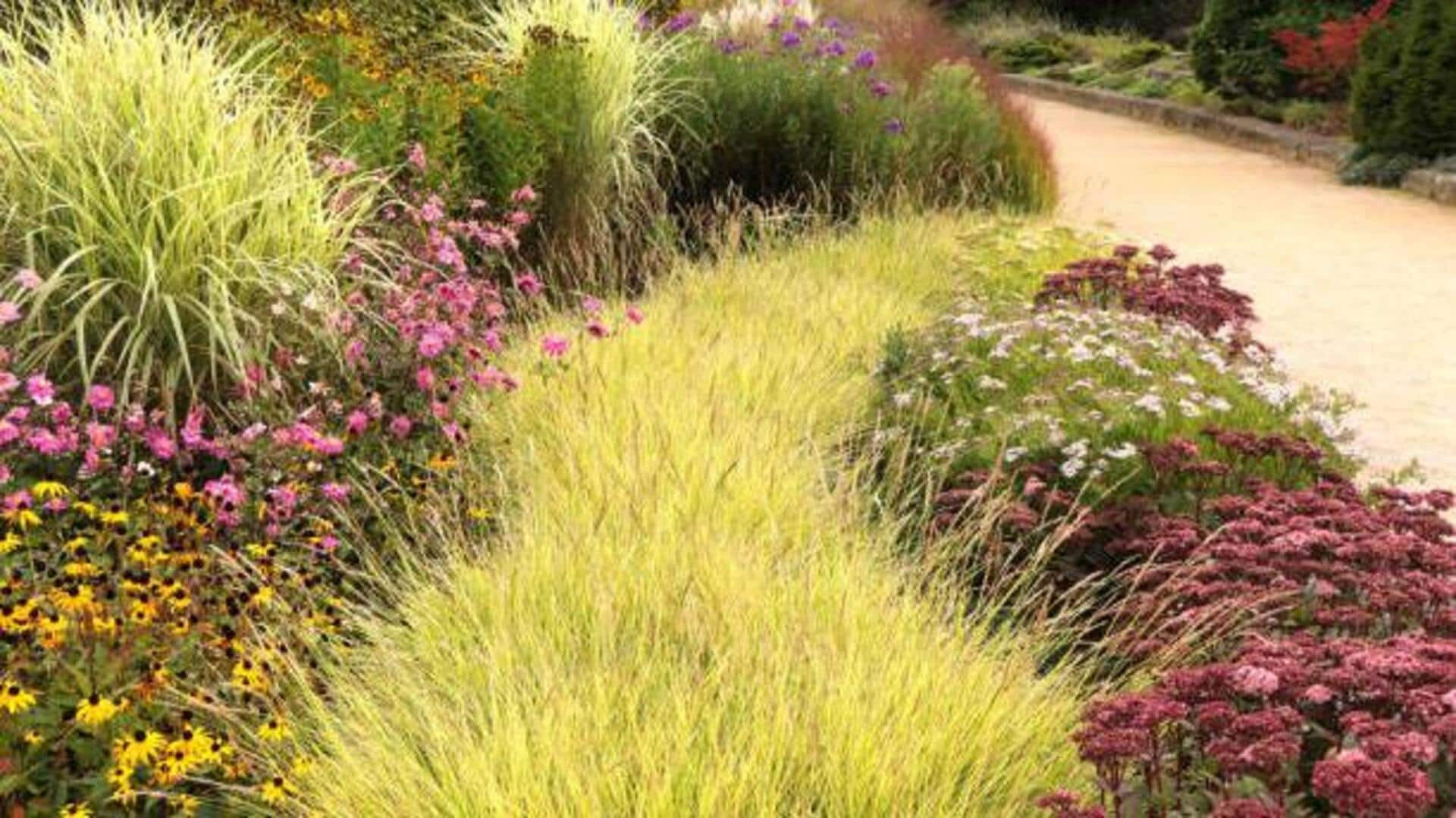
Ornamental grasses: Easy care for a beautiful garden
What's the story
Ornamental grasses are a popular choice for sustainable landscaping, and for good reason. They are low maintenance, eco-friendly, and grow well in a variety of climates. Ornamental grasses require minimal water and provide a natural habitat for insects and birds. They add texture and movement to gardens and reduce the need for fertilizers and pesticides. Here's how to take care of ornamental grasses.
Selection
Choosing the right grass variety
Selecting the right ornamental grass variety is key to successful landscaping. Consider factors such as climate, soil type, and sunlight exposure while choosing a species. Native grasses are usually more adaptable to local conditions, requiring less water and maintenance. Looking up different varieties will help ensure that you choose a grass that complements the needs of your landscape.
Planting
Proper planting techniques
Proper planting techniques are important for the health of ornamental grasses. Make sure the soil provides good drainage to prevent root rot. Spacing the plants adequately is important for good air circulation, which drastically reduces the risk of disease. Choosing to plant during the cooler months could be helpful as well, as it helps the roots establish well before summer heat, leading to a more robust growth.
Watering
Water conservation strategies
Ornamental grasses are typically drought-tolerant after establishment but may require regular watering in their initial growth phase. Implement drip irrigation systems or soaker hoses to reduce wasteful water consumption and target roots directly. Mulching around plants also helps retain moisture in the soil, decreasing evaporation rates by up to 50%.
Pruning
Pruning practices for healthier growth
Pruning is essential to keep ornamental grasses healthy and looking their best. Trim dead foliage each year before the new growth starts in spring or late winter (based on your area's climate). This encourages new growth and also prevents diseases from overwintering on the old leaves.
Pest control
Pest management without chemicals
Managing pests without chemicals is in line with sustainable landscaping principles as it prevents beneficial insects like pollinators from getting killed due to pesticides. Invite natural predators such as ladybugs into your garden with companion planting methods. Keep checking plants regularly, removing any visible pests manually if required, ensuring healthier ecosystems all around.